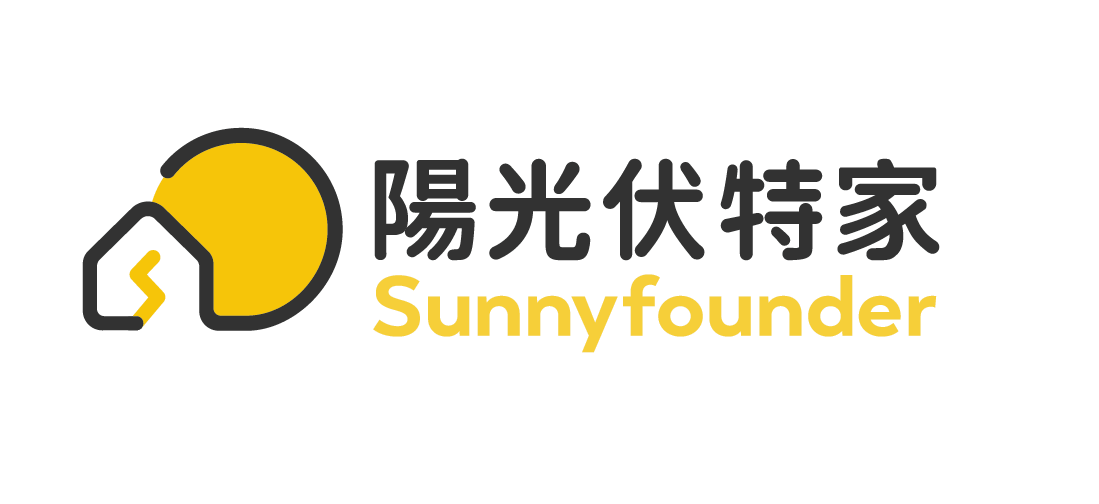





Keep this story going! Share below!
Sunnyfounder is the first and largest civil electricity-generating platform in Taiwan. Moreover, in September 2020, it was granted the nation’s first license to sell green energy. Sunnyfounder is dedicated to being a provider of innovative solutions for a sustainable energy transition, trying to widen the popularity of green energy and invite everyone to engage in the sunny power plant while also incorporating a service model that would help to stabilize power grid systems.
The company's biggest goal is to generate more and more renewable energy sources and enable all people to participate in the development of green power and obtain a stable 6-8% internal rate of return on green power income for 20 years.
In general, the cost of building a 10kw small-scale solar power plant on a Taiwanese household rooftop is about EUR 15000( Apollo Power, 2021). Whereas Sunnyfounder breaks down the participating unit to the smallest, one single solar panel. The cost of each solar panel subscribed at Sunnyfounder is about EUR 800 which lowers the barriers to investing in renewable energy. There are three main business models. First, Citizen Power Plant. People first choose the power plant on the platform, and then they can decide the number of solar panels they would like to invest in. Due to the increased demand for RE100 and ESG, Sunnyfounder seized the business opportunity to develop a second business model, Green Energy Trading. Sunnyfounder could directly sell electricity to enterprises or other counterparts who have green energy requirements. Third, Green Energy Charity. Sunnyfounder teamed up with various organizations, for example, Citibank to promote the "Green E2" project to implement the UN’s Sustainable Development Goals. They invite employees and the wider public to join. The project helped the St Camillus Center for Intellectual Disability in Yilan County build a solar energy system. Thus, Sunnyfounder is increasing the source of green power supply through a variety of operating models to increase public participation and ultimately generate more users of green power.

While writing her doctoral dissertation at the Institute of Social Studies, the founder, Phoebe Chen, discovered that Taiwan was a primary provider of solar energy modules. She started to reflect on whether there are products in Taiwan that apply green energy technology. Even though the Taiwanese government has started to create a green economy, the participants are still mainly large enterprises. She believes that the most crucial thing about green power is that it can be popularized. Every household can be more engaged in - and increase the use of - green electricity. She was involved in the Ministry of Economic Affairs' Sunshine Million Roofs pilot project during her dissertation. To her surprise, Phoebe realized that everyone is interested to cooperate in green power development, but often don't have the roofs, don't have the technology, and can't afford the high capital investment. Bringing this passion for renewable energy, a mutual friend introduced Phoebe to Feng Xiaoru, another founder in the engineering profession. On a beautiful afternoon, they had a cup of coffee and exchanged their visions for solar power generation. At that moment, they decided to start a business together.
For a long time, the people of Taiwan have been passive recipients of energy. With the emergence of companies like Sunnyfounder, people who want to participate in the energy transition now have a starting point. The founder, Phoebe, found that there are actually considerable people in Taiwan who are willing to contribute to green energy, and the actual results have verified that the expectations are feasible and influential: only discussing Green Charity projects, Sunnyfounder has completed 16 unique projects so far, with a total of more than 8,000 participants, and benefited more than 2,000 children, the elderly, and the disabled.
Their primary focus for United Nations 17 SDG Goals is Goal 7, Affordable and Clean Energy.
"Although there are many ways to participate, our actions are always related to green energy. We hope to take participants alongside us and let them understand: Green energy is the most important action to respond to climate change, save energy, and reduce carbon.”
- Phoebe Chen (Founder)
But the creative and flexible business model also allows them to contribute to many other goals, including 13 Climate Action, 17 Partnership for Goals, 3 Good Health and Wellbeing, and more.
Green energy has become more accessible, and everyone can easily participate; at the same time, green energy has also become 'warmer' instead of a cold technology product: many citizen power plants represent the care for the disadvantaged in society. More profoundly, it means the beginning of a change in the energy transition: from top-down, where government pushes the policies, to bottom-up, where people actively participate. That is to say, the Sunnyfounder platform model helps catalyze civic participation and the practice of achieving "energy democracy". And only in this way the change is sustained.
There are big market potentials in both individuals and corporate participations. Many companies need to transform into green electricity in response to the international wave of sustainability, policy changes, global supply chains, and ESG pursuits. As the first green electricity retailer in Taiwan, Sunnyfounder has already become a leading supplier and planner of green electricity for many domestic companies. The service includes employing green electricity for enterprises, purchasing certificates, and even creating green electricity charity projects for them. In addition, they also resell green electricity for domestic green power generators. In 2021, the Taiwan Ministry of Economic Affairs implemented a clause stating that large electricity consumers need to use at least 10% green electricity before 2025. This is a confirmed trend and business opportunity.
An increasing part of the general public knows about Sunnyfounder, thanks to the media coverage and marketing efforts. For people who want to do their part for the environment, Sunnyfounder provides an easy and even profitable way to do so. Some people can't develop a habit like bringing a reusable bottle, but through Sunnyfounder they can make an investment through a few clicks online, and even get a stable income for up to 20 years.
From company establishment to the end of 2021, Sunnyfounder has driven more than 26,000 people to invest and built 365 power plants, in addition to the construction of 10 green energy charity power plants. These estimates will generate 220 million kWh of green electricity in 20 years, which means a carbon reduction of 113 million kilograms.
In addition, Sunnyfounder also pays attention to the manufacture and recycling of solar panels: in the past, the pollution caused by the manufacturing process has always been one of the concerns of solar energy industry. Now, due to the advancement of technology, the pollutants have been greatly reduced and are strictly controlled. Sunnyfounder is also planning and communicating with government about the recycling mechanism for solar panels that will be retired in 20 years, in order to make use of the components and be fully circular.
In addition to caring about the environment, Sunnyfounder also emphasizes "leave no one behind": through many Green Charity projects, they have successfully helped remote tribes, social welfare organizations, etc., through innovative business models. On the eve of Earth Day on April 22, 2021, Sunnyfounder further launched the "Green Well 100+" initiative, hoping to achieve the goal of 100 green charity actions by 2030 and move towards Sunnyfounder's vision: Sustainable energy for all.
Get stories of positive business innovations from around the world delivered right to your inbox.
Phoebe Chen, Founder


Sunnyfounder is committed to becoming the provider of innovative solutions for a sustainable energy transition, allowing everyone to participate in the production and application of renewable energy, as well as adding a service model which would stabilize the power grid systems.